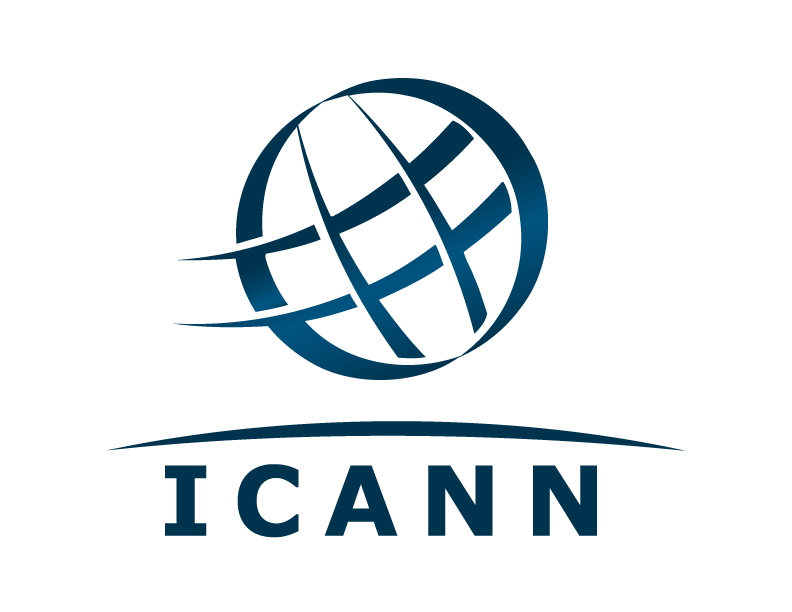Next Generation Leaders (NGL) Program > Past Fellowship to the IETF > Internet Society Fellows to the IETF
Past Internet Society Fellows to the IETF
This program is currently on hold and we are not accepting applications until further notice.
Internet Society Fellowships to the IETF were for Internet Society members from emerging or developing economies who have the technical skills and experience to contribute to the work of the IETF.
Internet Society Fellows to IETF 104
Meet Internet Society Fellows to IETF 104, held in March 2019 in Prague, Czech Republic.

Bernice Kibet
(Kenya)
Bernice Kibet is an Enterprise Access Engineer at Safaricom Limited, where her role involves building and supporting the enterprise infrastructure utilizing different copper, optical and wireless technologies (e.g. GPON, LTE, WiMAX and P2P). She graduated from Jomo Kenyatta University of Agriculture and Technology with an undergraduate degree in Telecommunication Engineering and holds several professional certifications. Bernice is actively involved with Safaricom Women in Technology (WIT), working on equipping and empowering young women to succeed in technical roles.
Her areas of interest include SDN, IoT, and cybersecurity. She is currently following the 6MAN, V6OPS, IPWAVE and MPLS working groups.
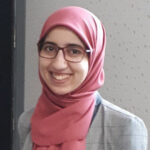
Hajar Hantouti
(Morocco)
Hajar Hantouti is a PhD student at the University of Moulay in the city of Meknes. Her research centers around service function chaining in next generation networks including SDN and NFV. She is actively following the SFC working group in the IETF, but is more broadly interested in SDNRG and NFVRG. Hajar obtained her Masters degree in Information Systems Security at the University of Ibn Tofail at Kenitra-Morocco. Outside of her professional work, she is involved in several local activities to train women on the use of information and communication technologies (ICTs).

Jeisson Sanchez
(Colombia)
Jeisson Sanchez is a Researcher at NIC Chile Laboratory and a Student in Electrical Engineering at Universidad de Chile, where he is part of the Wireless Network Group in the Faculty of Physical and Mathematical Sciences. At NIC Chile (the registrar for .CO), he focuses on operational analysis and deployment of infrastructure solutions. Jeisson is also interested in the development of applications to implement DNSSEC validation from the client side based on RFC 7901. His research interests are DNS (specifically the protocol extensions), AI for big data processing, and IoT applications. He follows a number of different working groups such as DNSOPS, IPPM and LWIP.
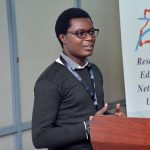
Kyemba Kitimbo Ben
(Uganda)
Kyemba Kitimbo Ben is a Network Engineer with the Research and Education Network for Uganda (RENU). His core responsibilities at RENU is to design, build and support the country wide research and education network with focus on IP core operations to deliver differentiated services. He is also a Trainer in the RENU capacity building program in areas such as scalable network design, campus network wireless and network security. Kyemba obtained a BSc in Computer Engineering from Makerere University and holds a Juniper Networks Certified Associate (JNCIA) qualification. He follows the V6OPS and 6MAN working groups at the IETF.

Lucas Bondan
(Brazil)
Lucas Bondan is a PhD student in Computer Science at the Institute of Informatics of the Federal University of Rio Grande do Sul (UFRGS). He is also part of the Grupo de Trabalho Ecossistema Federado para Oferta, Distribuição e Execução de Funções Virtualizadas de Rede (GT-FENDE), working as Project Manager. From 2016 to 2018, Lucas was a PhD Fellow in the Department of Information Technology at Ghent University in Belgium. He obtained his BSc at Pontifícia Universidade Católica do Rio Grande do Sul and his MSc at UFRGS.
Lucas’ research interests include NFV, SDN, network management and services orchestration, service function chaining (SFC), cognitive networks, and wireless communication systems.

Sonam Lhamo
(Bhutan)
Sonam Lhamo works as a Systems Engineer for Bhutan Telecom Ltd. She holds a BSc in Computer Science from Savitribai Phule Pune University and a MSc in IT Security from University of Westminster. In her currently role, she is responsible for the deployment of core infrastructure for key services such as DNS, email and others. Sonam is actively involved with NOGs across Bhutan, works as a Trainer for BTNOG, and has been an APNIC Fellow. Her research interests are DNS, IoT security, and IPV6 migration and optimization.

Shabbir Ali
(Pakistan)
Shabbir Ali is an Infrastructure Engineer at China Mobile Pakistan (Zong-CMPak), where his responsibilities include core infrastructure deployment, performance management, and business continuity/disaster recovery. His research interests are privacy, network resilience, DNS and virtualization. He is very interested in contributing to the DNSOP, 6LO and V6OPS working groups at the IETF.

Thilina Pathirana
(Sri Lanka)
Thilina Pathirana works as a Network/Systems Engineer for Lanka Education and Research Network (LEARN), where he oversees the LEARN Technical Assistance Center where he delivers technical support for member universities. He also serves as a Mentor for fellow engineers on emerging technologies, network security, and IPv6. Thilina obtained his BSc from the University of Kelaniya and a MSc from the University of Colombo.
He also holds a number of professional qualifications from the Engineering Council (UK), City and Guilds, and Cisco. He is actively involved with LKNOG, APAN, SANOG, APRICOT, and APNIC.

Vato Chantladze
(Georgia)
Vato Chantladze is the Enterprise Architect & Head of IT Security at UGT (Tbilisi). His work is focused on deploying next-generation firewalls, advanced IPS, DDoS mitigation systems, security information and event monitoring (SIEM) tools, and multi-faceted data analytics. He leads the delivery of key projects in the public sector, telecoms and financial services industries. Vato is also an Instructor who works with students and tech talent to build capacity across the country as it relates to robust network deployment.
Internet Society Fellows to IETF 103
Meet Internet Society Fellows to IETF 103, held in November 2018 in Bangkok, Thailand.
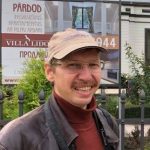
Dmitry Belyavskiy
(Russian Federation)
Dmitry Belyavskiy is a Software Developer and the co-author of RFC 7836 – ‘Guidelines on the Cryptographic Algorithms to Accompany the Usage of Standards GOST R 34.10-2012 and GOST R 34.11-2012’. He is interested in the Security area of the IETF, specifically working groups such as SAAG, CFRG, TLS, LAMPS, and SECDISPATCH.
He intends to present an Internet draft related to Certificates Limitation Policy (https://tools.ietf.org/html/draft-belyavskiy-certificate-limitation-policy-06) at IETF 103 to better understand from the community how it can be developed and implemented in various software for enhancing overall Internet security. Dmitry is also interested in exploring the implementation of Russian national standards in cryptographic libraries such as OpenSSL.

Fatou Secka
(The Gambia)
Fatou Secka is employed as a Network Manager at Unique Solutions Co. Ltd. In this role, she is responsible for designing, implementing, troubleshooting and supporting the core data network. Simultaneously, Fatou is presently undertaking her undergraduate studies in Information Systems at the University of Gambia.
She currently holds the CCNA, CCNP, and CCIE certifications, and is actively involved with AfChix as well as GamChix to equip and empower young women in technology. Fatou is a member of the ISOC Gambia Chapter and is interested in the V6OPS and MPLS working groups.
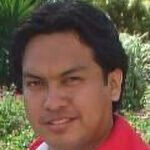
Javier Hurtado
(Colombia)
Javier Hurtado is an Associate Professor of telecommunications networks, network services and programming at the University of Cauca. He is also working on his postgraduate studies and conducting research at the same academic institution. Javier’s research topics include SDN, NFV, SFC, and the application of Artificial Intelligence (AI) and Big Data to network management.
He is also an entrepreneur and co-founded Software Mobile Solutions, a tech startup that specializes in software integration around network virtualization and Blockchain technology.
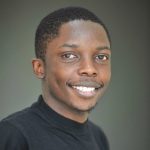
Lawrence Muchilwa
(Kenya)
Lawrence Muchilwa is a Security Consultant at Silensec where his main focus areas are security standards compliance (ISO27001, PCI DSS), vulnerability assessment, security audits and incident response. He is also a Blue Team Consultant at KE-CERT (Kenya Computer Emergency Response Team) where he is involved in penetration testing and providing alerting and mitigation services to affected entities. He holds a BSc in Computer Science and Technology and a number of certifications in IBM and Linux platforms. Lawrence has participated in the African Internet Summit Hackathon developing running code using the IPWAVE standard. He is also a former Youth@IGF Fellow having participated in the IGF Guadalajara cohort.

Lijo Thomas
(India)
Lijo Thomas is working as a Principal Engineer at the Centre for Development of Advanced Computing (C-DAC) in the Ministry of Electronics & Information Technology. His group is focused on building solutions for key industries, particularly around instrumentation and automation. Lijo’s work includes developing embedded hardware and its applications and installation and commissioning of products for various applications, including industrial wireless sensor networks. He is interested in the 6LO, 6TISCH, ROLL and DETNET working groups at the IETF. He has proposed a draft in 6LO which has completed shepherd review and is expecting Area Director approval shortly.
The deadline draft has been implemented in the OpenWSN environment and has been merged with the main distribution for further download and development.

Mikheil Kartvelishvili
(Georgia)
Mikheil Kartvelishvili is a Technology Architect at UGT IT Solutions where his duties include designing, deploying and upgrading IP/MPLS backbone infrastructure. He is also a Training Instructor delivering courses on Cisco, Juniper, BGP, and other topics. Mikheil holds a MSc in Computer Science and has obtained the Cisco Certified Internetworking Expert (CCIE) and Juniper Certified Internet Specialist (JCIS) certifications. He was formerly the Chief Network Engineer for the Georgian Research and Education Network Association (GRENA), Head of the Networks Project Division for JSC Silknet, and was one of the founding members of the ISOC Georgian Chapter.
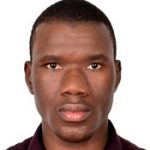
Montrésor Konan
(Ivory Coast)
Montrésor Konan is an Information Systems and IT Project Management Engineer working on areas related to the Internet of Things (IoT), Artificial Intelligence (AI) and Distributed Ledger Technologies (DLTs). He is the Co-Founder of SécuRouteCI, a tech startup specialized in the production of technological solutions to face the increasing rare of insecure platforms in Ivory Coast. Montrésor is also a Member of Ovillage CI, a civil society organization that promotes collective intelligence and entrepreneurship focused on the development of the Internet in Africa. Presently, he is actively involved in both Burkina Faso and Senegal on the launch of the organization ‘African Youth for Internet’ which is aimed at building awareness among young people in order to motivate greater participation among African youth on issues related to the development of the Internet.
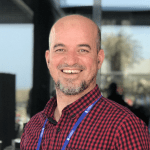
Nabil Benamar
(Morocco)
Nabil Benamar is an Associate Professor of Computer Networks and Internet Technologies. His main research topics are IPv6, vehicular networks, DTNs, IDNs and IoT. Nabil is the author of several journal papers and a reviewer for several scientific journals. He has been a Technical Program Committee member in different IEEE conferences (Globecom, ICC, PIMRC, etc.), and is currently a member of the organizing committee of the IEEE WCNC conference to be held in 2019 in Marrakech. Nabil is an IPv6 Expert/Trainer for a number of international organizations and a member of the Task Force for Arabic IDNs which is a part of ICANN Global Stakeholder Engagement (GSE). He is interested in the 6MAN, V6OPS and IPWAVE working groups, and the co-author of three Internet drafts, of which he will be presenting two of them in Bangkok.
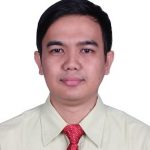
Rifqy Hakimi
(Indonesia)
Rifqy Hakimi is a Junior Lecturer and Researcher at Bandung Institute of Technology (ITB). His research interests are Software Defined Networking (SDN), Information Centric Networking (ICN), and Future Internet Technologies. He also works as an instructor for IT certifications from Cisco (CCNA, CCNP, CCIE), Huawei (HCDA, HCNA Routing Switching, HCNA Cloud) and Mikrotik (MTCNA). He was previously selected as a Fellow of the Asia Pacific Advanced Network (APAN), a community that connects the research and education networks of Asia and Oceania. Rifqy has also been a member of Toward an OpenFlow-enabled SDN Infrastructure over TEIN (OF@TEIN) project, a collaborative research project on future networks (SDN/NFV/Cloud-integrated) research.

Shalu Rajendran
(India)
Shalu Rajendran is working as a Design Engineer at the Centre for Development of Advanced Computing (C-DAC), where she is involved in firmware and application development for industrial applications. She is currently working in a project which envisages the development of wireless sensor network solutions for real time applications. Shalu has made a number of contributions to the Contiki OS regarding the implementation of 6TISCH architecture and testing of the protocol using simulators and real hardware. She has also Implemented a 6lo draft (https://datatracker.ietf.org/doc/draft-ietf-6lo-deadline-time/) in the OpenWSN environment and it has been merged with main distribution for further download and application development.
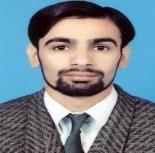
Syed Muhammad Sajjad
(Pakistan)
Syed Muhammad Sajjad is a Senior Lecturer at Riphah Institute of System Engineering. He currently holds a PhD in Information Security from the Riphah International University, where his research areas are security, privacy and trust in IoT systems. Syed has submitted a draft entitled ‘An Architecture for Collaborative Security and Proactive Defense against IoT Botnets’ in the Thing-to-Thing Research Group (https://datatracker.ietf.org/doc/draft-sajjad-t2trg-colsec/), and is looking forward to presenting it in Bangkok. He is also interested in the work of the 6lo, 6tisch, dots, and core working groups at the IETF, and is an APNIC Fellow and a SANOG Fellow.
Internet Society Fellows to IETF 102
Meet Internet Society Fellows to IETF 102, held in July 2018 in Montreal, Canada.

Ahmath Bamba Mbacke
(Senegal)
Ahmath Bamba Mbacke is an Assistant Professor in the Computer Science Department of Ecole Superieure Polytechnique at the Cheikh Anta Diop University. His areas of professional interest are Cloud Computing, Internet of Things (IoT), Multi-Agent Systems, Artificial Intelligence, Virtual Learning, Distributed Systems, and Multimedia Protocols. He is also a Member of the Organizing Committee for the 2018 AFRICOMM Conference. Ahmath is involved with the ISOC Senegal Chapter, particularly with efforts to build capacity across the membership base.
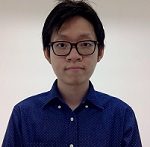
Adisorn Lertsinsrubtavee
(Thailand)
Adisorn Lertsinsrubtavee is a Research Specialist at the Asian Institute of Technology. He is currently working on the EU H2020 UMOBILE project to exploit the strengths of ICN and DTN in the development of an affordable Internet backhaul for rural and remote areas. Adisorn is also the lead on an initiative known as TakNet where the goal is to use wireless mesh technology to extend Internet access in the rural areas of Thailand. He utilizes RFC3626 and RFC7181 – both standards related to Optimized Link State Routing Protocol (OLSR) – in his projects. He is interested in the GAIA and ICNRG research groups.
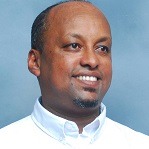
Dagmawi Lemma
(Ethiopia)
Dagmawi Lemma is the Chair/Assistant Professor in the Department of Computer Science at Addis Ababa University. He obtained his BSc and MSc (Computer Science) degrees and his PhD (Information Technology) degree all from Addis Ababa University. He specializes in Embedded Systems, Ubiquitous Computing, Usability Engineering, and Software Design & Architecture. His current research areas include RFID security, IoT Security, Implicit-HCI and IPv6-DDoS. In 2018, he joined a project at the Ethiopian Science Academy for the revision of the ICT curriculum for BSc programs at higher educational institutions across Ethiopia.
Dagmawi is an Eminent Expert for Ethiopia at the World Summit Awards and is involved with a number of Internet/ICT-related technical committees in his country.
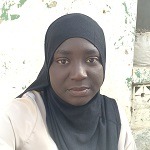
Fatou Secka
(The Gambia)
Fatou Secka is employed as a Network Manager at Unique Solutions Co. Ltd. In this role, she is responsible for designing, implementing, troubleshooting and supporting the core data network. Simultaneously, Fatou is presently undertaking her undergraduate studies in Information Systems at the University of Gambia. She holds the CCNA, CCNP, and CCIE certifications, and is actively involved with AfChix as well as GamChix, working on equipping and empowering young women in technology. Fatou is a member of the ISOC Gambia Chapter and is extremely interested in the V6OPS and MPLS working groups.
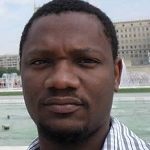
Kester Quist-Aphetsi
(Ghana)
Kester Quist-Aphetsi is a Lecturer in the Faculty of Informatics and the Manager of the Digital Forensics Laboratory at the Ghana Telecom University College. He is a Fellow of the UK Higher Education Academy and an active member of IEEE Experts in Technology and Policy with specializations in internet governance, cybersecurity, and privacy. Quist-Aphetsi was previously a Scientific Research Ambassador to the World Scientific Forum.
He obtained his PhD in Computer Science and Applications from Université de Bretagne Occidentale, MSc in Software Engineering from the Open University Malaysia, and BSc in Physics at the University of Cape Coast. His areas of interest are Information Security, Cryptography, Digital Signal Processing, and Computer Modeling & Simulation.
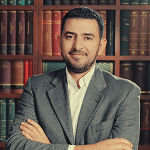
Khalid Samara
(Jordan)
Khalid Samara is a Network Security Expert at Orange Telecom and the Chair of the Middle East Network Operators Group (MENOG). At Orange Telecom, he leads the planning, deployment and support for cross domain solutions, platform security integration, and high security network infrastructure across platforms such as 4G/3G/2G wireless, ADSL, MPLS, and GPON. He obtained his BSc in Computer Engineering at Al-Balqa Applied University. Khalid also holds a number of industry certifications, including Certified Ethical Hacker (CEH).
He is a Member of the MEAC Strategy Working Group at ICANN and is actively involved in the ISOC Jordan Chapter. Khalid is interested in the IPPM, L2VPN, and ISIS working groups.
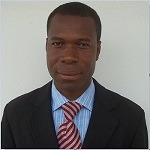
Lossan Bonde
(Burkina Faso)
Lossan Bonde is an Assistant Professor and the Program Director for the MSc in Applied Computer Science at the Adventist University of Africa. His core work areas include Software Engineering, Artificial Intelligence, Object Oriented Programming, and Free and Open Source Software (FOSS). Lossan holds undergraduate degrees in Computer Science and Business Administration, MSc in Computer Science, and a PhD in Computer Science. He has lectured at several universities in Cameroon, Ghana, France, and Kenya, and also regularly conducts academic programme audits at various tertiary level institutions.

Mikheil Kartvelishvili
(Georgia)
Mikheil Kartvelishvili is a Technology Architect with UGT and a Consultant with JSC Silknet. He holds a MSc in Computer Systems & Networks from the Georgian Technical University and is qualified as a CCNP, CCIP, CCIE, JNCIA and JNCIS. His current focus is on IP/MPLS core architecture including QoS, Traffic Engineering and Network Security. Outside of his professional day-to-day work, he also delivers Cisco-related training and is active in the ISOC Georgia Chapter. Mikheil is interested in the MPLS, RTWG, SPRING and ISIS working groups at the IETF.

Roberto Iraja da Costa Filho
(Brazil)
Roberto Iraja da Costa Filho is a PhD Student at the Federal University of Rio Grande do Sul (UFRGS) where he conducts research and lectures on active measurements in IP networks, network and systems management, object-oriented programming and operating systems. He is also a Scientific Advisory Board Member at the Portotech Institute of Technology. Roberto has previously worked as an IP Network Consultant at Telefonica S.A. where he was tasked with measuring the quality of IP services on CDMA2000 networks. He is interested in the IPPM, DMA and ANIMA working groups at the IETF.

Shamar Ward
(Barbados)
Shamar Ward is a PhD Candidate at The University of The West Indies (UWI), where his research focuses on building smart technologies (e.g. Smart Cities, Smart Campuses, etc.) from damaged or discarded technology. His areas of specialization include IoT, Geospatial Technologies, Object Oriented Programming, and Free and Open Source Software (FOSS). Shamar also works as a Software Developer for the Caribbean Examination Council (CXC) and is a Part-Time Tutor at the UWI Cave Hill Campus where he shares his experiences and knowledge with students beyond the structured class layouts. He is a CARICOM Youth Ambassador and a former ICANN NextGen awardee. Shamar is looking forward to participating in the ROLL, WEBRTC, and SUIT working groups at the IETF.
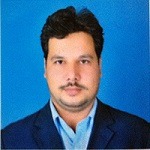
Tariq Saraj
(Pakistan)
Tariq Saraj is currently working as a Research Engineer at Riphah Institute of Systems Engineering (RIU) in Islamabad. His professional background includes Computer Networking, Network Security, and System Architecture. As part of his PhD work, he has finalized an IETF draft for the DNSOP working group and intends to present this draft in Montreal. He is a Returning Fellow and has also participated in the IETF Outreach Programme. Mr. Saraj also delivers training on IPv6 at universities across Pakistan and is involved with the Cloud Security Alliance (Pakistan) and Pakistan Network Operators Group (PKNOG). He is subscribed to the DPRIVE and DNSSEC working groups at the IETF.
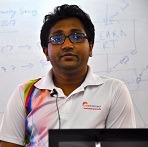
Thilina Pathirana
(Sri Lanka)
Thilina Pathirana is a Network Engineer at Lanka Education and Research Network (LEARN). He is responsible for the LEARN Technical Assistance Center which provides technical support for the organization’s member institutes. He also oversees the professional development of junior engineers, assisting them with getting up to speed on new technologies and work methods, as well as on maintaining secure, high bandwidth networks. He obtained his undergraduate degree from University of Kelaniya in Computer Science and Statistics and completed the MSc in Information Security at University of Colombo. He is actively involved with the ISOC Sri Lanka Chapter, is the Treasurer of LKNOG, and is a Programme Committee Member at SANOG.
Internet Society Fellows to IETF 101
Meet Internet Society Fellows to IETF 101, held in March 2018 in London, UK.
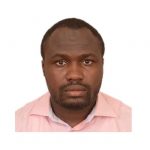
Abdulkarim Oloyede
(Nigeria)
Abdulkarim Oloyede is a Lecturer at the University of Ilorin and Kwara State University, where he teaches Internet protocols to undergraduate and graduate students, and also conducts research on the performance of EIGRP and OSPF using OPNET. He holds a PhD in Electronics Engineering and a MSc in Telecommunications. He is currently a member of the Technical Advisory Committee for Nigeria at the ITU and is also the Vice-Chair for the ITU-D Telecommunication Development Advisory Group (TDAG). Abdulkarim has been widely published in a number of academic journals and is very interested in the OSPF working group at the IETF.

Afifa Abbas
(Bangladesh)
Afifa Abbas is an Information Security & Governance Lead Engineer at Banglalink Digital Communications Ltd. She leads the R&D and implementation activities at the organization with regards to DNS security, routing security and DDoS mitigation. Afifa has been an ICANN and APNIC Fellow and is a member of APRALO. She holds a BSc in Electrical and Electronics Engineering and a MSc in Electrical and Telecommunications Engineering, and specializes in security operations: vulnerability management, incident response, security information and event management, and network threat behavioral analysis. Afifa is keenly looking forward to participating in the DNSOP and OPSEC working groups.
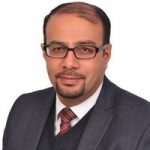
Ahmad Alasadeh
(Palestine)
Ahmad Alasadeh is an Assistant Professor at Birzeit University in Palestine. He teaches network security and cryptography, supervises undergraduate projects and graduate theses, and is currently undertaking research around usability challenges with secure neighbor discovery (SEND). Ahmad holds a PhD in Network Security and a MSc in Scientific Computing. He is a regular speaker at academic conferences and his work is published in several research journals. He is a Board Member of the ISOC Palestine Chapter and a Member of ICANN APRALO. His interests at the IETF are the ANIMA and TLS working groups.
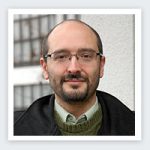
Diego Dujovne
(Chile)
Diego Dujovne (Chile) is an Associate Professor at the Universidad Diego Portales, where he has been leading a number of institutional projects: built a LoRa simulator to test LPWAN protocols; built an ICMPv6 implementation using LPWAN SCHC; and others. Diego holds a PhD in Informatics from INRIA France, and specializes in topics such as wireless sensor networks, embedded systems, IoT, and digital signal processing. He is currently the Chair of the IEEE Communications Society Chapter in Chile and has been involved with supporting ISOC’s IETF outreach activities in Latin America. Diego is a Returning Fellow having been selected for IETF 89 and IETF 98. He currently follows the DETNET, ROLL, 6LO, 6TISCH, and LPWAN working groups at the IETF.

Jose Ignacio Alvarez-Hamelin
(Argentina)
Jose Ignacio Alvarez-Hamelin is a Professor at the Universidad de Buenos Aires. He is also the Head of the Complex Networks and Data Communications research group, where he guides the direction of research studies around network congestion, complex systems, routing protocols, and interconnection. He has most recently been involved in a study in Paraguay and Bolivia where he has been investigating the evolution of IXPs. He actively follows the IPPM and TICTOC mailing lists and has prepared a draft on ‘Advanced Unidirectional Route Assessment’ to present to the IPPM working group at IETF 101 London.

Marcelo Santos
(Brazil)
Marcelo Santos is a Professor at the Federal Institution of Sertao Pernambucano. His current research activities are centered around SDN, NFV, IoT, smart grid, and network measurement. He holds a PhD in Computer Science and a Master of Information Engineering. Marcelo was part of a team funded by Ericsson Research that developed cloud computing solutions known as LAMCloud and SONCloud. He is a CGI.br Fellow and will be coordinating an IETF/IRTF workshop at the 2018 Conference of the Brazilian Computer Society. Marcelo currently follows the work of the NMRG, NFVRG, and T2TRG research groups at the IETF.
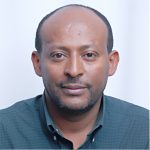
Nesredien Suleiman Wubeneh
(Ethiopia)
Nesredien Suleiman Wubeneh is a Lecturer at Addis Ababa University, where he is also the Coordinator for Postgraduate Continuing and Distance Education. His research interests are IoT, Internet routing security, and mobile IP networking. Nesredien recently initiated a project to incorporate IETF documents and working group activities into the undergraduate and graduate programs schedules at his university. He holds both BSc and MSc degrees in Computer Science and is currently undertaking a PhD in Information Technology. Nesredien is very interested in the DOTS and 6LO working groups.

Pavle Vuletic
(Serbia)
Pavle Vuletic is an Assistant Professor who teaches advanced computer networking at the University of Belgrade, School of Electrical Engineering. He has obtained BSc, MSc and PhD degrees from the University of Belgrade, School of Electrical Engineering as well. His research interests cover the areas of SDN, active network monitoring and measurement, and network and systems security. Pavle presently manages AMRES, the national research and education network (NREN) for Serbia and is also involved with RSNOG and RIPE NCC.
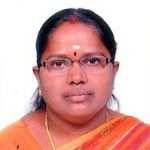
Subbian Umamaheswari
(India)
Subbian Umamaheswari is an Associate Professor at Damodaran College of Science where she focuses on research in the areas of IoT, big data analytics. cloud computing, and 5G networks. She holds a BSc in Computer Science, MPhil and DPhil degrees in Computer Science, and is also widely published in academic journals and conference papers. Subbian has previously been the Coordinator for the “Research Paradigms in Communication and Data Engineering” and “Emerging Trends in Digital Image Processing” working groups of the Joint Science Education Programme sponsored by Indian Academy of Sciences. She currently follows the ROLL, MANET and CORE working groups.

Tirumaleswar Reddy Konda
(India)
Tirumaleswar Reddy Konda is a Senior Software Architect at McAfee Inc. (India), specializing in protocol design at the Internet, transport, and application layers, and currently involved in projects related to secure protocols, cloud security, VOIP security and firewall/NAT. He is a Member of the Cisco India Patent Advisory Board and has 15 approved patents at the U.S. Patent Office. Tiru has co-authored 14 RFC and over 7 IETF WG drafts, and is an active contributor to the DOTS, DPRIVE and RTCWEB working groups at the IETF. He is a Returning Fellow, having been selected for the Fellowship to IETF 90 and IETF 96.
Internet Society Fellows to IETF 100
Meet Internet Society Fellows to IETF 100, held in November 2017 in Singapore.
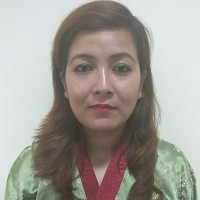
Alisha Gurung
(Bhutan)
Alisha Gurungis an Executive Engineer at Bhutan Telecom Limited. She is also an Instructor/Trainer at the Bhutan Network Operators Group (BTNOG) and the Asia-Pacific Regional Internet Conference on Operational Technologies (APRICOT). Her specialization is network security, and she is eager to better understand the open standards development processes at the IETF, and to participate in the work of the dnssec and dnssd working groups.
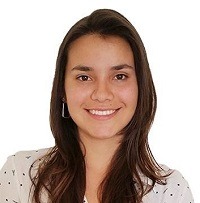
Daniela Casas Velasco
(Colombia)
Daniela Casas Velasco is an Electronics and Telecommunications Engineering Student at the University of Cauca. She is currently working on a YANG-based information model for a vertical management plane in a heterogeneous SDN environment. Daniela is a member of IEEE, and is following the netconf, netmod, and opsawg working groups at the IETF.

Fernando Gont
(Argentina)
Fernando Gont currently works for SI6 Networks as an Internet Security and Engineering Consultant. He is an active participant at the IETF, where he contributes to several working groups, and has authored a number of requests for comments and Internet drafts. He is a regular speaker at conferences, trade shows and technical meetings, discussing information security, operating systems and Internet engineering.
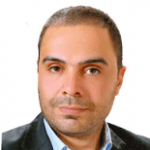
Hamad Droubi
(Jordan)
Hamad Droubi is the Domain Names Officer at the National Information Technology Center. He holds a BSc in Management Information Systems, and is very interested in IPv6, DNSSEC and best practices for network operations. He is a member of the MEAC Strategy Working Group at ICANN, and is actively involved with the Middle East Network Operators Group (MENOG). Hamad is new to the IETF, and would like to become more knowledgeable in the work of the 6man and v6ops working groups.
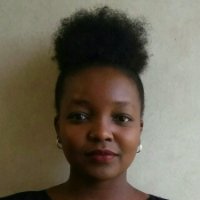
Isabel Odida
(Uganda)
Isabel Odida is a Data Planning Engineer at MTN Uganda. She is also a Trainer for the African Network Operators Group (AfNOG) where she teaches the Scalable Internet Services course. Isabel is an avid supporter of free and open source software (FOSS), and bases all her training on these platforms. She is very passionate about knowledge sharing and empowering the talented minds involved in the African technical community.
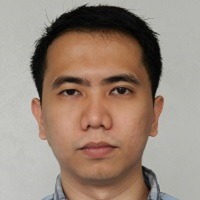
John Robert Mendoza
(Philippines)
John Robert Mendoza is a PhD Student in Electrical and Electronic Engineering at the University of the Philippines. He is currently exploring ways to make network management and operations easier through the development of network tools driven by insights from performance data received from software-defined networking (SDN) technologies. He follows the work of the netconf working group and the nfvrg research group at the IETF. He is also very interested in harnessing the power of predictive algorithms in communication networks.
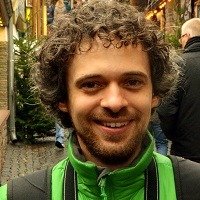
Lucas Muller
(Brazil)
Lucas Muller is a PhD Student at the Federal University of Rio Grande do Sul (UFRGS), where his thesis is addressing problems in global Internet routing and network interconnections. He also works closely with the Brazilian Internet Steering Committee (CGI.br), Peering Ecosystem IX.br (Brazil Internet Exchange Point) and with the Brazilian National Research and Educational Network (RNP).
He is interested in the grow, ippm, mptcp, working groups and the nmrg research group at the IETF.
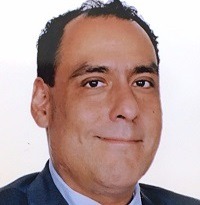
Luis Martinez
(Mexico)
Luis Martinez is a Professor and Researcher at the Universidad Iberoamericana in Mexico City, where he currently heads the Digital Convergence Programme. He is a member of the Advisory Council for the National Institute of Telecommunications and the President of the Internet Society Chapter Mexico.
His research is focused on the study of the impact of technology in society through education and communication, and he has deployed a number of community networks and FM radio stations for communities in indigenous areas across Mexico. He is following the gaia research group at the IETF.
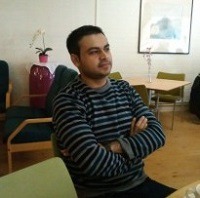
Muhammad Sajjad Akbar
(Pakistan)
Muhammad Sajjad Akbar is a PhD Student at Bournemouth University in the United Kingdom. His research is centered around wireless body area sensor networks (WBASNs), and he specifically works with MAC and routing protocols while integrating them with Internet of Things (IoTs) devices and networks.
Muhammad holds a Master of Science degree in Wireless Networks and Telecommunications from Muhammad Ali Jinnah University (Pakistan) and a Master of Information Technology degree from Barani Institute of Information Technology (Pakistan). He is interested in the 6LO and V6OPS working groups in the IETF. Muhammad is a Returning Fellow.
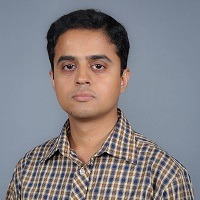
Rao Naveed Bin Rais
(United Arab Emirates)
Rao Naveed Bin Rais is an Associate Professor at the Computer Engineering Department at Ajman University. His research interests include next generation communication networks, network virtualization, software-defined networks, and information centric networks. He is also exploring new research areas such as Software-Defined Networks (SDN). He completed a Ph.D. in Networks and Distributed Systems from INRIA/University of Nice. He is an ICANN Fellowship awardee, and is very excited about working with the HIP, MANET, LISP, and MPTCP working groups at the IETF. He is also a Returning Fellow, having participated in the programme at IETF 92.
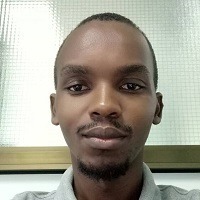
Raymond Linus
(Tanzania)
Raymond Linus works with the .TZ registry as a Lead Systems Engineer. He is also an Instructor at the Tanzania Network Operators Group (TzNOG) where he delivers courses on DNS, DNSSEC and deploying open source mail/web servers. Raymond is also an Internet Society online instructor, and moderates the ‘Introduction to Network Operations’ course. His interests include software development, systems administration, and he is extremely committed to training the next generation of technical leaders in Africa. Raymond is looking forward to finding out more about the dnsop and dprive working groups at the IETF.
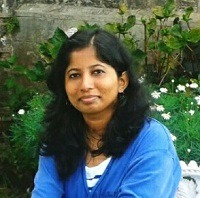
Shalu Rajendran
(India)
Shalu Rajendran is a Project Engineer at the Centre for Development of Advanced Computing (C-DAC), a research initiative of the Government of India. Her work at C-DAC is focused on implementing the 6top sublayer on Contiki OS, which facilitates the allocation of cells between neighboring nodes for satisfying dynamic bandwidth requirements. Her areas of interest include wireless sensor networks and embedded programming, and she follows the 6tisch, 6lo, detnet and roll working groups at the IETF. She and her team recently uploaded the implementation of their 6lo expiration time draft in the OpenWSN environment and it has been merged with the main distribution.
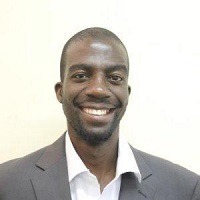
Solomon Hopewell Kembo
(Zimbabwe)
Solomon Hopewell Kembo is a Software Engineering Instructor and MSc Student at the University of Zimbabwe. He is passionate about free and open source software (FOSS), and jumps at any chance to discuss topics at the intersection of FOSS, the African-centric concept of ‘Ubuntu’, and the emergent sharing economy.
Solomon is currently engaged in an initiative called the IoT Makerspace, which is aimed at engaging IOT developers at polytechnics and universities in Zimbabwe to drive the development of relevant applications and to ultimately grow the local ecosystem. He is interested in the coap, core, cbor and json working groups at the IETF.

Syed Muhammad Sajjad
(Pakistan)
Syed Muhammad Sajjad is a Secure Application Developer at the Center for Cryptology and Security at the University of Islamabad. He is also currently studying for his PhD in Information Security at the Riphah International University, where his research areas are security, privacy and trust in IoT systems. He is interested in the work of the 6lo, 6tisch, dots, and core working groups at the IETF, and is an APNIC Fellow and a SANOG Fellow.
Internet Society Fellows to IETF 99
Meet Internet Society Fellows to IETF 99, held in July 2017 in Prague, Czech Republic.

Abhijan Bhattacharyya
(India)
Abhijan Bhattacharyya is a Scientist at the Innovation Lab of Tata Consultancy Services; Asia’s largest software exporter. He presently works on creating innovative solutions that address the future requirements of IoT-specific applications. He is the co-author of RFC 7967. Abhijan holds Bachelor degrees in Computer Science and Information Technology from the University of Calcutta. His interests at the IETF are the CoRE, ACE, LWIP, DICE, T2TRG, SAAG, LPWAN, QUIC working groups. Abhijan is also a returning Fellow having been selected to participate in the Fellowship programme for IETF 90, IETF 93, and IETF 96.

Adarsh Umesh
(India)
Adarsh Umesh is a Design Engineer at Smartron India Private Ltd in Hyderabad, India. He has previously worked with Exilant Technologies, ERNET India and the Indian Institute of Science. He currently employs IETF protocols such as 6TiSCH and 6LoWPAN in the development of innovative IoT products. He specializes in real time operating systems (RTOS) like OpenWSN, Contiki OS, RIOT, Tiny OS and numerous embedded systems. He is an active member of IEEE and the Internet Society, and a regular speaker and contributor to IOT-related forums and working groups. Adarsh was recognized in 2016 as one of the Top 8 IoT Thought Leaders for his contribution towards the advancement of IoT in India.

Angela Maria Rodriguez
(Colombia)
Angela Maria Rodriguez is a PhD student at the University of Cauca, specializing in Autonomic SDN Management. She holds a Masters in Computer Science and a Bachelors in Telecommunications from the University of Cauca. Angela received the Young Researcher’s Award from the Government of Colombia. Previously, she was a Researcher at the University of Popayan (Colombia) and Visiting Researcher at the University of Castile (Spain). Her research interests are Telematics Applications and Services, Distributed Systems, and Web Applications. She is interested in the SDNRG, NMRG and NMLRG research groups at the IRTF.
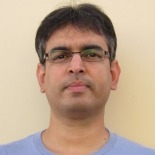
Ernesto Perez
(Ecuador)
Ernesto Perez is a CSIRT Coordinator at redCEDIA Ecuador. He is currently working wih the national and education network (NREN) in his country, with LACNIC in the area of cyber incident response, and supporting the implementation of DNSSEC in the .ec ccTLD. He holds a BSc in Software Engineering and a MSc in Telecommunications. Ernesto is interested in the DANE, V6OPS, and WEBSEC working groups at the IETF.
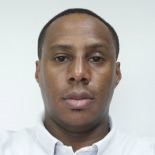
Glenn Peace
(Costa Rica)
Glenn Peace is a Network Engineer at NIC.cr, where his work is primarily focused on IXP and ccTLD management. He was previously a Technical Support Engineer with Cisco Systems. Glenn holds a number of Cisco and MicroTik certifications, and is active in organizations such as LACNIC, LACNOG, LAC-IX, and LACTLD. He is seeking to become involved in the V6OPS and 6MAN working groups of the IETF.
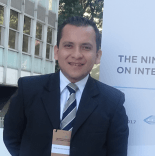
Irvin Willian Meza Chalén
(Ecuador)
Irvin Willian Meza Chalén is a Systems Technician as well as a BSc in Systems Engineering student at Laica Eloy Alfaro de Manabi University. He has participated in the LACIGF, South School on Internet Governance (SSIG), and the Ecuador national IGF. He is very interested in creating an academic community that is closely tied to the work of the IETF.
His specialties are network operations and protocol development, and he is looking forward to finding out more about the open standards development process at the IETF. He is also eager to participate in the JSON working group.
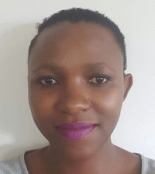
Ithabeleng Moreke
(Lesotho)
Ithabeleng Moreke is an IP Systems Engineer at Vodacom Lesotho. She holds a BSc in Electronics from the University of Lesotho and a number of Cisco certifications. She previously worked as an IT Network Specialist at Vodacom Lesotho and a Network Systems Administrator at the Ministry of Communications and Technology. She is currently her company’s Technical Contact for AFRINIC and works on DNS platforms. Ithabeleng is interested in DNSOPS working group at the IETF.
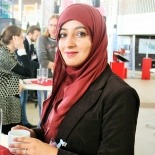
Kishwer Abdul Khaliq
(Pakistan)
Kishwer Abdul Khaliq is a Doctoral candidate at the University of Bremen, where she is a member of the Dynamics in Logistics (DIL) working group, and works on the application of Internet technologies in logistics and manufacturing scenarios. She is also conducting research on vehicular ad hoc Networks (VANET) for safety and information based-applications, IPv6 design and deployment and mobility management. Kishwer has completed BSc and MSc degrees in Computer Science. His preferred working groups at the IETF are V6OPS, MANET and AVTEXT.
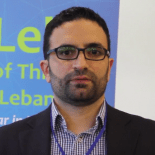
Marc Ibrahim
(Lebanon)
Marc Ibrahim is an Associate Professor and Director of the Computer Modeling and Information Technology Center at the Saint Joseph University of Beirut. He holds BSc and MSc degrees in Telecommunications Networks from the Saint Joseph University and a PhD in Computer Science from the Université de Versailles Saint-Quentin. He is currently working on the deployment of IoT LPWANs in agriculture environments and on Internet performance measurement in Lebanon. He is particularly interested in contributing to the LPWAN and LMAP working groups at the IETF.
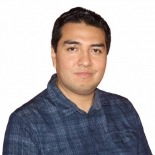
Marcelo Salas
(Bolivia)
Marcelo Salas is a Researcher/PhD Student at the University of Campinas where his work is centered around developing tools and techniques to detect and classify malicious traffic to protect against Tor-based attacks. He is a FRIDA programme awardee, former participant in the South School on Internet Governance (SSIG), and a volunteer at IEEE/IEEE Computer Society. The DOTS, SACM, and I2NSF working groups are most aligned with his current professional endeavors.
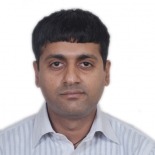
Mohit Batra
(India)
Mohit Batra is a Technical Consultant at the National Internet Exchange of India (NIXI). He is also an Internet Governance Advisor to the Ministry of Communications & Information Technology. His areas of interest include DNSSEC, IPV6, and IoT. Mohit currently holds the Certified Ethical Hacker (CEH), Certified Security Analyst (CSA) and Certified Information Systems Security Professional (CISSP) qualifications.
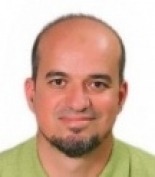
Nabil Benamar
(Morocco)
Nabil Benamar is an Associate Professor of Computer Science in the University of Moulay Ismail in Meknes, Morocco. He is also a Trainer on Cisco platforms, IPv6 and Linux. His main topic of research is Delay Tolerant Networks (DTN), and he is looking forward to interacting and discussing his ideas with the members of the DTN working group in the IETF. Nabil is an ISOC Next Generation Leader and IGF Ambassadors alumni.
He is also a Returning Fellow to the IETF, having been previously selected for IETF 89, IETF 92 and IETF 95. He is actively involved with MENOG, AFRINIC, and the Saudi Arabia IPv6 Task Force.
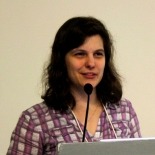
Nathalia Patricio
(Brazil)
Nathalia Patricio is a Technical Advisor at NIC.br and a PhD student at the University of São Paulo. She holds BSc and MSc degrees in Computer Engineering from the University of São Paulo. Her research activities pertain to the development of measurements and metrics for net neutrality. She is also engaged with the Internet and Society Studies Hub (NETS), which brings together students involved in legal and engineering disciplines. Nathalia lectures at Anhembi Morumbi University and SENAC University, teaching courses about Internet Governance and Information Security. Her specific area of interest at the IETF are the LMAP, TEAS, and IPPM working groups.
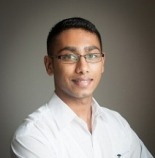
Nikesh B Simmandree
(Mauritius)
Nikesh B Simmandree is a Systems Engineer at AFRINIC. In this role, he provides support for the organization’s computer systems and related infrastructure for staff and members in RIR’s service region. His background is in the areas of systems and networks engineering, cybersecurity, Internet governance & policy, and cyber law. He holds a BSc in Systems Engineering and a number of industry certifications. He participates in AFNOG and is keen to be involved in shaping the future of the Internet and its continuity. His interests at the IETF are the HOMENET and IPSEC working groups.
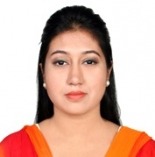
Shaila Sharmin
(Bangladesh)
Shaila Sharmin is an Assistant Network Operations Manager at Link3 Technologies LTD where she works in the areas of IP/MPLS, BGP, large-scale Ethernet, and IP core security. She is a former Senior Core & IP Network Engineer at Banglalion Communications LTD. Shaila is currently and Executive Committee Member at BdNOG, and has volunteered as an APNIC Trainer in the past. She holds a BSc in Computer Science from the Ahsanullah University of Science & Technology and a MSc in Network Systems Administration from the American International University. She is interested in the MPLS, ISIS, V6OPS and TEAS working groups in the IETF.

Salozver Sole
(Venezuela)
Sole Salozver is a Professor at Los Andes University where she lectures on systems development. She holds a BSc in Systems Engineering and a MSc in Control and Automation Engineering. She was formerly the Development Director (ag) at Cenditel Venezuela. Salozver is a free and open source software (FOSS) advocate and has professional interests in neural networks and TCP modeling and performance. She is currently subscrived to and following the JSON and CORE working groups at the IETF.

Syed Muhammad Sajjad
(Pakistan)
Syed Muhammad Sajjad is a Secure Application Developer at the Center of Cryptology Security (COCS). He holds a BSc in Electrical Engineer from Federal Urdu University, MSc in Electrical Engineering from COMSATS Institute, and a PhD in Information Security from Riphah International University. Syed is active in PkNOG, SANOG and the Pakistan Information Security Association (PISA). His work is centered around the development of secure applications, systems and protocols. He is looking forward to participating in the 6LO, 6TISH, LWIG and CORE working groups at the IETF.
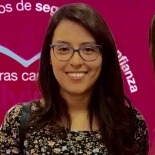
Thalia Lozada
(Ecuador)
Thalia Lozada works in BI & Data Advisory at EY Ecuador. She previously worked as a BI Specialist at Bayer Crop Science and was engaged with the Microsoft Student Partnership. Thalia holds a BSc in Systems Engineering from Pontificia Universidad Catolica del Ecuador. She is humbled to have been selected as an IETF Fellow and is looking forward to finding out as much as possible about the open standards development process, and how she can become involved and contribute effectively.
Internet Society Fellows to IETF 98
Meet Internet Society Fellows to IETF 98, held in March 2017 in Chicago, IL, United States.

Agustín Formoso
(Uruguay)
Agustín Formoso is a Software Engineer at LACNIC. He is heavily involved in research work at LACNIC, and was also part of the team that implemented RDAP. He is also involved in the operationalization and deployment activities of LACNOG. Agustín holds a Bachelor of Science degree in Telematics Engineering from the Universidad de Montevideo (Uruguay). He is interested in the REGEXT, SIDR, 6LO and V6OPS working groups and the MAPRG research group in the IETF.
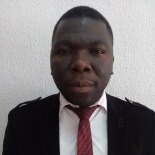
Akanle Matthew Boladele
(Nigeria)
Akanle Matthew Boladele is currently a Senior System Engineer in the Center for System and Information Services (CSIS) at the Covenant University in Nigeria. He is also a System Administrator for the Covenant University Bioinformatic Research Centre (CUBRe) and a Technical Training Lead for the Young Internet Professionals (YiPS) of Nigeria. He obtained a Bachelors degree in Electrical/Computer Engineering from the Federal University of Technology.
Matthew is a Member of the Nigerian Society of Engineers and a Registered Engineer of the Council for the Regulation of Engineers in Nigeria (COREN). His areas of interest include but are not limited to cloud computing, cybersecurity, and IPv6 technologies.
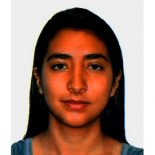
Ana Montoya
(Colombia)
Ana Montoya is an Undergraduate Student in Electronics Engineering and Telecommunications at the University of Cauca. She is currently working on her thesis and has submitted a paper to the IEEE ACCESS Journal titled, ‘A YANG-Based Information Model for SDN Management’. It consists of the design of a YANG-based information model to perform configuration tasks in a heterogeneous SDN environment that consider different Autonomous Systems (AS).
Ana is passionate about many topics, particularly software defined networks (SDN), network management, gamification (online learning games), and projects that impact society at several different levels.
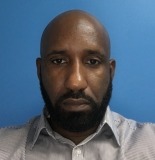
Brent McIntosh
(Grenada)
Brent McIntosh is currently the Group Lead for IP/MPLS Operations for Cable and Wireless Communications (CWC), the largest telecommunications service provider in the Caribbean region. In this role, he oversees the operations of IP transit capacity, 3rd Party CDN (Google, Facebook, Netflix, etc.), IXP deployments and IPng. Brent is passionate about IXP deployments and IPv6 technology on a whole. IPv6 deployment in the Caribbean is one of his personal and professional objectives, and as such, he is involved with many communities that are fostering this change such as IPv6 Forum and CaribNOG.

Diego Dujovne
(Chile)
Diego Dujovne is an Associate Professor at Universidad Diego Portales in Santiago, Chile. He is a Returning Fellow to the IETF98, having previously participated in the programme at IETF89 in London. Diego is active in the DETNET and ROLL working groups (WGs), and more recently in the LPWAN WG. He and the team at his university have developed a LoRaWAN simulator module for OMNET++ and an early implementation of the LPWAN SCHC (IPv6 over LPWAN networks).
His working interests are IoT and Deterministic Networks, but he is also quite interested in Content-Centric Networks and Wireless Experimental Platforms. Diego is the Chapter President of the IEEE Communications Society of Chile.

Diego Londoño
(Colombia)
Diego Londoño is a Postgraduate Student at the University of Chile where he is completing the Master of Science (MSc) in Electrical Engineering. He is also a Research Assistant at NIC Chile Research Labs. Diego’s work is primarily in the areas of IoT, HTTP2, and application protocols in constrained networks. He is the Past President of the IEEE Communication Society (Comsoc) University Chapter at Icesi University. He is particularly interested in the CORE, 6LO, HTTPBIS, and QUIC working groups in the IETF.

Keolebogile Rantsetse
(Botswana)
Keolebogile Rantsetse is a Lecturer at Limkokwing University of Creative Technology where she teaches modules such as Fundamentals of Internet Technology, Internet Security and Data Communications & Networking. She is very passionate about research on Internet technologies and cybersecurity, and is also interested in developing and nurturing young minds on emerging technologies.
Keo actively participates in meetings such as AFRINIC and AfNOG, and is passionate about fostering the development of the Internet within the Southern African region. She is hoping to work more and more with girls and women to cultivate their interest in ICT and engineering in order for them to take up roles in male-dominated professions.

Muhammad Sajjad Akbar
(Pakistan)
Muhammad Sajjad Akbar is a PhD Student at Bournemouth University in the United Kingdom. His research is centered around wireless body area sensor networks (WBASNs), and he specifically works with MAC and routing protocols while integrating them with Internet of Things (IoTs) devices and networks.
Muhammad holds a Master of Science degree in Wireless Networks and Telecommunications from Muhammad Ali Jinnah University (Pakistan) and a Master of Information Technology degree from Barani Institute of Information Technology (Pakistan). He is interested in the 6LO and V6OPS working groups in the IETF.
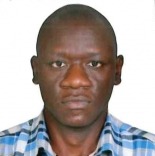
Samwel Kwamanga
(Kenya)
Samwel Kwamanga is the IT Manager for Sanofi East Africa. He holds a Bachelor of Science in Information Technology from the United States International University and a MBA in Strategic Management from the University of Nairobi. He has previously been employed with DHL Global and the International Committee of the Red Cross. He is interested in the HTTPBIS, AVT, and NETVC working groups in the IETF.
Internet Society Fellows to IETF 97
Meet Internet Society Fellows to IETF 97, held in November 2016 in Seoul, South Korea.
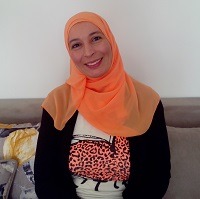
Anissa Bhar
(Tunisia)
Anissa Bhar is an Associate Professor at the Higher Institute of Technologies in Charguia, Tunisia. Her field of expertise is computer systems and networking, and she is presently working on IPv6 deployment across the national research and education network (NREN). She holds a MSc in Computer Science and a number of industry certifications in Cisco networking and Linux platforms. Beyond her professional expertise, Anissa is keen about female empowerment, privacy, and child online protection.
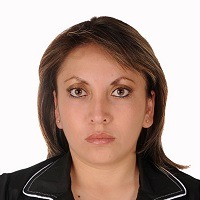
Cristhy Jimenez
(Ecuador)
Cristhy Jimenez is an Assistant Professor at the University of Chimborazo in Riobamba. She is currently pursuing a PhD in Informatics Engineering at Pontifical Catholic University of Valparaíso in Chile. Cristhy’s doctoral thesis is focused on developing usability evaluation elements for emerging technologies. She is aware of the need for a stronger emphasis on software engineering, software quality and the requirement for contributing to the engineering and evolution of Internet technologies but while seeking an optimal end user experience.
Her passion is to investigate how to improve the overall user experience without sacrificing functionality or security elements.
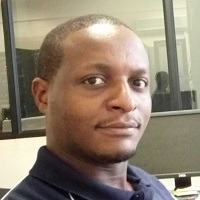
David Gaamuwa
(Uganda)
David Gaamuwa is the Acting Network Manager at the University of Makerere in Kampala. He holds a BSc in Information Technology and is currently pursuing a MSc in Information Systems. He also possesses a number of certifications in cybersecurity, satellite communications and scalable network architectures. David is actively involved with the Research and Education Network of Uganda (RENU). He is interested in the 6man, homenet, and ntp working groups of the IETF.

Eduardo Morales
(Brazil)
Eduardo Morales is presently employed as a Technical Analyst with NIC.br. He holds a BSc in Computer Science and several industry certificates (including qualifications in IPv6 from both LACNIC and NIC.br). His current work involves advocacy and training on IPv6 and best current operational practices for autonomous systems. Eduardo is interested in the v6ops, 6man, 6lo, and sunset4 working groups at the IETF. He intends to use his experience at the IETF to become more involved in open standards development, and to continue evangelizing the merits of IPv6 across Brazil and the wider Latin America region.
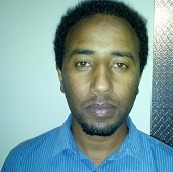
Habtom Tesfaye
(Ethiopia)
Habtom Tesfaye is a Senior IT Infrastructure Expert at UNECA (United Nations Economic Commission for Africa). In this role, he is responsible for the management of a broad array of network, infrastructure and database systems. Habtom obtained a BSc in Electrical and Computer Engineering from Addis Ababa University of Technology. He was previously employed as a Vice President for the African Technology Policy Studies Network (ATPC). He is currently working on a joint venture between ATPC and Addis Ababa University in the area of improving women’s access to education through ICT skills development.
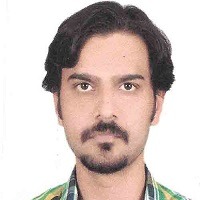
Harish Chowdhary
(India)
Harish Chowdhary is a Technical Analyst at the National Internet Exchange of India (NIXI). He is also currently seconded to work in the Internet Governance division at the Ministry of Electronics and Information Technology, Department of Electronics on the India Internet Governance Project. He holds a Masters degree in Computer Applications, and is presently involved in outreach and technical consultations on WHOIS, DNS / DNSSEC, IDN, ICANN related policies, IP number resources, IPv6 and related issues. Harish is very interested in the dnsop, dprive, idn, and acme working groups at the IETF.
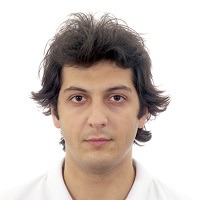
Konstantin Karosanidze
(Georgia)
Konstantin Karosanidze is the Chief Technology Officer (CTO) of the Information Technologies Development Center. He holds a Bachelors degree in Information and Communications Technology from the Georgian Technical University. He is presently working on a number of projects around Internet exchange deployment, ccTLD management and DNSSEC. He is very enthusiastic about participating in the grow and dots working groups at the IETF.

Nomsa Mwayenga
(Zimbabwe)
Nomsa Mwayenga is currently employed as a Consulting OSP Engineer at Huawei Technologies in South Africa. She previously worked as a NOC Engineer at Liquid Telecom in Zimbabwe. Nomsa holds a BSc in Computer Science from the University of South Africa, is pursuing a MSc in Telecommunications, and holds a number of industry certifications in routing & switching. She has spearheaded the establishment of the ISOC Zimbabwe Chapter, founded the Zimbabwe Network Operators Group (ZimNOG), and serves on the Task Force for the Zimbabwe IGF (ZIGF).
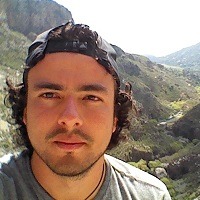
Rafael Rosa
(Brazil)
Rafael Rosa is a PhD Candidate at the University of Campinas in São Paulo, Brazil. He holds a BSc in Communications Networking Engineering, a MSc in Computer Science, and is currently pursuing a PhD in Computer Engineering. His current research topics are software-defined networks and network functions virtualization. Raphael is a Returning Fellows, having been selected for IETF 95. He is presently working on drafts being considered in the bmwg and nfvrg at the IETF.
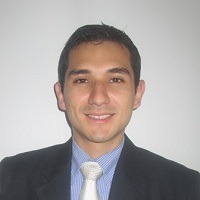
Ricardo Peláez-Negro
(Colombia)
Ricardo Peláez-Negro is the Chief of the Network Management Center at Universidad de Ibagué, one of the top five institutions with the biggest IPv6 deployments in Colombia. He is also a part-time Tutor at the same academic institution. He qualified as a System Engineer from the Fundación Universitaria San Martín (Colombia) and obtained his Masters in Free and Open Source Software from the Universitat Oberta de Catalunya (Spain). His experience includes network and communications systems, server administration and IT planning. He is actively involved in LACNIC meetings and working with IPv6 deployments across Colombia.
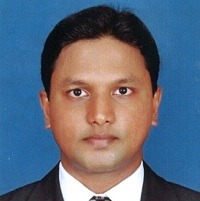
Srimal Andrahennadi
(Sri Lanka)
Srimal Andrahennadi is the Operations Manager at OpenArc Systems Management Ltd. He obtained a BSc in Information Technology from University of Moratuwa (Sri Lanka) and a MSc in Enterprise Applications Development from Sheffield Hallam University (UK). His professional activities include Internet applications and systems development, cybersecurity and project management. He is actively involved with APNIC, Asia Pacific Next Generation (APNG) Networking Group, and the Sri Lanka Next Generation (SLNG) Working Group. Srimal is interested in the rtcweb and json working groups at the IETF.

Xiaohong Deng
(China)
Xiaohong Deng is a Student at the University of New South Wales where she is completing her PhD in Computer Systems Networking & Telecommunications. She previously worked for France Telecom (Orange), first as a Network Architect and then as a Project Leader / Research Engineer. Xiaohong has also been engaged with APNIC as an IPv6 Trainer. She has been actively involved with the IETF since 2010, and has completed one RFC and is currently working on two others. She is a Returning Fellow, having been selected for IETF 81, IETF 88 and IETF 94.
Internet Society Fellows to IETF 96
Meet Internet Society Fellows to IETF 96, held in July 2016 in Berlin, Germany.

Abhijan Bhattacharyya
(India)
Abhijan Bhattacharyya is a Scientist at the Innovation Lab of Tata Consultancy Services; Asia’s largest software exporter. He presently works on creating innovative solutions that address the future requirements of IoT-specific applications. He has previously submitted a draft to the CoRE working grouping, and it has reached a mature stage. Abhijan is also a returning Fellow having been selected to participate in the Fellowship programme for IETF 90 Toronto.
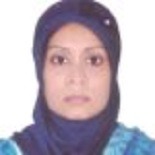
Farzana Mithun
(Bangladesh)
Farzana Mithun is a Senior ICT Officer with the United Nations World Food Programme. In this role, she is responsible for IT service delivery, including infrastructure, telecommunications, and applications. She also oversees the IT Helpdesk, and is accountable for cybersecurity and business continuity management. Farzana holds a BSc in Applied Physics and Electronics, a MEng in Computer Science, and has acquired the Project Management Professional (PMP) and Certified Information Systems Auditor (CISA) qualifications.
She is very interested in the V6OPS and WEBSEC working groups of the IETF. Farzana is a past recipient of the SANOG Fellowship.
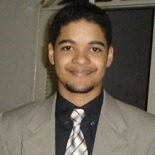
Humberto Silva Galiza de Freitas
(Brazil)
Humberto Silva Galiza de Freitas is a Senior Network Engineer for AmLight Project (www.amlight.net), a collaborative network consortium among research and education networks (RENs) from the U.S. and the Latin America. He also works at the Brazilian research and education network (RNP) in Campinas, Sao Paulo. He holds a BSc in Computer Science and is currently undertaking a MSc in Computer Networks. His main interests are following the discussions on the SDNWG, NFVRG, and GROW working groups.
He is a co-author of an IETF draft in the Networking Working Group (IPv4 with 64 bit Address Space). Humberto is motivated to continue in this area of work to help people improve their lives in some way through the use of Internet protocols and related technologies.

Joan Masai
(Kenya)
Joan Masai is a Network Engineer at Kenya Education Network (KENET), the national research and education Network (NREN) of Kenya where she contributes to delivering Internet and ICT services to institutions of higher learning, research centers and some schools around the country. Her role at KENET spans the network core, distribution and access layers and involves working on MPLS, leased lines, radio, and switching & routing technologies. She is keenly interested in Internet governance, cybersecurity and big data. Joan currently follows the work of the V6OPS and ISIS working groups in the IETF.
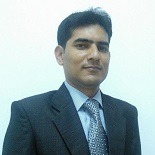
Karan Verma
(India)
Karan Verma is an Associate Professor at Central University of Rajasthan (India). He holds a PhD from the Universiti Teknologi PETRONAS in Malaysia and a MTech in Networking from the Indian Institute of Technology. His main interest is information security and he is working on intelligent transport system security. Karan has developed an IP-CHOCK Reference which detects and prevents DoS attacks. Karan is passionate about building a community around Internet Standards to help others improve their understanding of the IT environment. He is a Returning Fellow and an IEEE-ISOC Exchange Fellow.

Leandro Melo de Sales
(Brazil)
Leandro Melo de Sales is a Professor at the Federal University of Alagoas (UFAL). He holds a BSc in Computer Engineering from the Federal University of Alagoas (UFAL) and MSc and PhD degrees in Computer Science from the Federal University of Campina Grande (UFCG). His main research interest is network protocols, specifically for multimedia applications, and in his PhD thesis he developed Global Media Transmission Protocol (GMTP), a cross-layer optimized protocol for massive distribution of live multimedia content.
Leandro is presently coordinating a number of workshops for the XXXVI and XXXVII Congress of the Brazilian Computing Society. He was previously a Fellow at IETF 94 and is also a IEEE-ISOC Exchange Fellow.
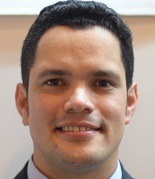
Mario Aleman
(Nicaragua)
Mario Aleman is the Nicaragua Section Chair at IEEE (Institute of Electrical and Electronic Engineers). He holds a BSc in Electronics Engineering and a MSc in Solar Technology Manufacturing. Mario has previously been a Visiting Research Scholar at the Fraunhofer Center for Sustainable Energy Systems (CSE), a Researcher at the Massachusetts Institute of Technology (MIT), and a Visiting Research Scholar at Cornell University.
He specializes in product prototyping and energy efficient systems, and he is interested in the MANET, IANAPLAN, DNSOP, and IDR working groups at the IETF. Mario is a former ITU Fellow and is the present Chair of the ISOC Nicaragua Chapter.
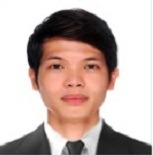
Melchizedek Alipio
(Philippines)
Melchizedek Alipio is a full-time PhD student in Electrical and Electronics at the University of the Philippines (Diliman), where he is working under the Ubiquitous Computing Laboratory of the Electrical and Electronics Engineering Institute. He is currently involved in the development of congestion control algorithms for cache-based protocols in Wireless Sensor Networks (WSNs).
Mel is a student member of the Institute of Electrical and Electronics Engineers (IEEE) and a member of ISOC Philippines Chapter (ISOC-PH). He is interested in the SDN, ICC, and T2T research groups and the DTN and RMCAT working groups at the IETF. He is committed to research that increases Internet penetration in the Philippines.
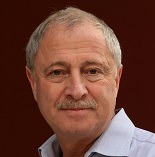
Mikhail Medrish
(Russian Federation)
Mikhail Medrish is a Director for the Internet Support Foundation. He was previously Chairman of the Board for the Coordination Center for Russian ccTLDs and has been the CTO for a number of Russia’s largest ISPs. He was also the Technical Lead for the first Russian project of mass broadband Internet access services and IPTV, organized on the basis of ADSL technology. He is interested in the ACE, SACME, and TLS working groups at the IETF.
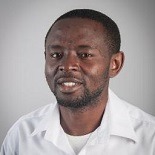
Musa Stephen Honlue
(Cameroon)
Musa Stephen Honlue is currently employed by AFRINIC as a Trainer – Capacity Building and Coordinator for the IPv6 certification program (certi6.io). He is also an Instructor for AFNOG. Stephen holds a BSc in Networking, MSc in Computer Science and possesses a number of industry certifications in routing & switching and security. He is looking forward to attending the V6OPS, DNSOPS, and IPSECME working groups at IETF 96.
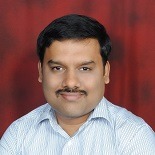
Tirumaleswar Reddy Konda
(India)
Tirumaleswar Reddy Konda is a Technical Leader at Cisco Systems, where he works on firewall and cloud-based Security as a Service (SaaS) features. He has 12 patents pending approval at the U.S. Patent Offices, and is conducting research in the areas of Security, WebRTC, Privacy and AEON (Application Enabled Open Networking). He is also an active contributor to the PCP, TRAM and RTCWEB working groups at the IETF. He is a Returning Fellow, having been selected for the Fellowship to IETF 90. Tiru has been cited in RFCs 7488, 7652, and 7376.
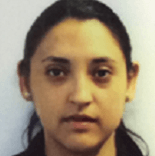
Ximena Robles
(Ecuador)
Ximena Robles is a Systems Engineer who is employed at the network operations center of CEDIA, the Ecuadorian national research and education network (NREN). She holds a BSc in Computer Science from the University of Cuenca (Ecuador) and is currently working on a MSc in Artificial Intelligence at KU Leuven University (Belgium). She is interested in the JOSE, V6OPS, TCPINC and IPPM working groups in the IETF.
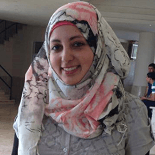
Zeina Daghlas
(Palestine)
Zeina Daghlas is a Telecommunications Engineer at Callu DSL in Ramallah, Palestine. She obtained her BEng in Engineering from the Arab American University in Palestine. She was one of the founding members of the IEEE branch at her university and is a actively involved in the ISOC Palestine Chapter. Her professional activities are centered around network operations, IPv6, DNS, and IoT. She is interested in the DNSOPS, 6LO, and 6MAN working groups.
Internet Society Fellows to IETF 95
Meet Internet Society Fellows to IETF 95, held in April 2016 in Buenos Aires, Argentina.
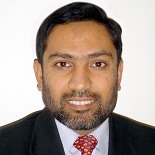
Amir Qayyum
(Pakistan)
Amir Qayyum is a Researcher, Professor and the Dean of the Faculty of Engineering at M.A. Jinnah University in Islamabad, Pakistan. His domains of research are aligned with the MANET, DTN and 6MAN working groups. He is also interested in the SDNRG research group. Dr. Qayyum has been involved with the IETF since 1997, and has co-authored RFC 3626 as part of the fulfillments for his Ph.D. Amir is a Returning Fellow, and has participated in IETF 81 and 88.
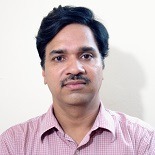
Anil Kumar
(India)
Anil Kumar is a Researcher at the CSIR (Council of Scientific and Industrial Research) Fourth Paradigm Institute in Bangalore, India. His work is in the area of transport layer protocols, and he particularly concentrates on security and multipath (coupled) congestion control. His secondary research activities are on passive and active network measurements for security inference. He is interested in the SCTP and MPTCP working groups.
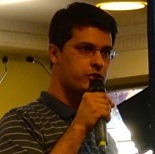
Caciano Machado
(Brazil)
Caciano Machado works as a Network Administrator for the Federal University of Rio Grande do Sul and as a Professor of Computer Science for the Lutheran University of Brazil. His professional background is in high performance computing and telecommunications. His main interests at present are network access controls, IoT, and captive portals. He is interested in the DHC, 6MAN, and V6OPS working groups. Caciano is a Returning Fellow having participated in IETF 81 and 85.

Chiara Pietra
(Argentina)
Chiara Pietra is studying Electronics Engineering (with an orientation in Telecommunications) at the Universidad Nacional de Rosario. Her professional interests are network systems architecture, access and transport networks, and high performance radio links. She is currently finalizing her thesis on IoT protocols, and also pursuing the Cisco Certified Network Associate (CCNA) qualification. She is interested in the ROLL and 6LO working groups.

Matheus Prola Pfitscher
(Brazil)
Matheus Prola Pfitscher (Brazil) is studying Computer Science at the Federal University of Rio Grande do Sul. His research is focused on development of Codematch, a social network for researchers applying for and developing new protocols. He is currently working on his thesis which covers Peer-to-Peer and Software-Defined Networking. He is looking forward to his first IETF meeting, and is interested in the NFVRG and SDNRG research groups.
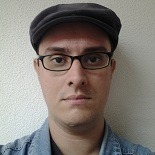
Miguel Angel Astor Romero
(Venezuela)
Miguel Angel Astor Romero is a Professor of Computer Science at the Universidad Central de Venezuela. He currently works at the Communications and Networking Research Center (CICORE) teaching courses in systems architecture, operating systems and distributed computing. He is also working on his post-graduate studies in bio-inspired mapping and localization methods for distributed mobile robot systems. He is interested in the NTP, OAUTH, OPENPGP, and TCPINC working groups.

Mohit Batra
(India)
Mohit Batra is a Technical Consultant at the National Internet Exchange of India (NIXI). He is also an Internet Governance Advisor to the Ministry of Communications & Information Technology. His areas of interest include DNSSEC, IPV6, and IoT. Mohit currently holds the Certified Ethical Hacker (CEH), Certified Security Analyst (CSA) and Certified Information Systems Security Professional (CISSP) qualifications.
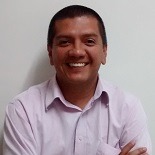
Oscar Caicedo
(Colombia)
Oscar Caicedo is a Professor at the University of Cauca in Popayán, Colombia. He hold a Ph.D. in Computer Science from the Federal University of Rio Grande do Sul in Brazil. His research is focused on the field of network management, specifically in the areas of network measurement, situation management, SDN, NFV, mashups, and service oriented architectures. He is interested in the NMRG, SDNRG, and NMLGR research groups and the OPSAWG working group.
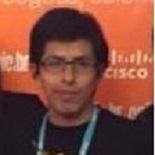
Pablo Diego Montes Jordan
(Bolivia)
Pablo Diego Montes Jordan is currently studying Systems Engineering. His professional interests are web application development, Internet governance, machine learning, artificial intelligence and data analytics. He is very interested in the confluence of policy and technology, and how multistakeholder processes in this respect can positively impact society. He is interested in the JOSE and JSONBIS working groups.
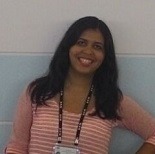
Priscylla Silva
(Brazil)
Priscylla Silva is currently studying her MSc in Computer Science at the Federal University of Campina Grande (Brazil) and conducting research in Artificial Intelligence at the Federal Institute of Sergipe. Her areas of professional interest include IoT and Software-Defined Networking. She is eager to find out more about the 6MAN and V6OPS working groups.
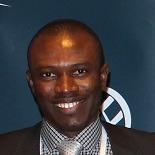
Ramanou Biaou
(Benin)
Ramanou BIAOU is an Internet Security and Network Systems Engineer involved in project coordination at AfricaDNSCheck. His current professional focus is on the RDAP protocol (alternative to WHOIS protocol) and the development of tools related to DNS optimization and security.
He coordinates the Benin DNS Forum that brings together stakeholders to share best practices and technical experiences on DNS, Internet architecture, and IPv6. He is keen on finding out more about the DNS, DNSSEC, IPv6 and DANE working groups.
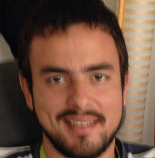
Rafael Rosa
(Brazil)
Rafael Rosa is a Ph.D. Student at the University of Campinas in São Paulo, Brazil. His current research topics are software defined network and network functions virtualization. He is eagerly looking forward to his first IETF meeting, and is interested in the NFVRG and SDNRG research groups.
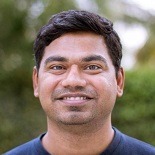
Vinayak Hegde
(India)
Vinayak Hegde is a Consultant in the areas of big data and network system architecture. Prior to this, he was employed with Akamai, Inmobi (a mobile ad network), and Microsoft in system architecture roles. Vinayak has been active in the IETF since 2009. His areas of expertise are in the Transport and Application and Real-Time areas. He is a member of the IETF Performance Directorate which reviews drafts for performance considerations. He is interested in the IPPM, BMWG, LMAP and HTTPbis working groups.

Zeina Daghlas
(Palestine)
Zeina Daghlas is a Telecommunications Engineer at Callu DSL in Ramallah, Palestine. She obtained her BEng in Engineering from the Arab American University in Palestine. She was one of the founding members of the IEEE branch at her university. Her professional activities are centered around network operations, IPv6, DNS, and IoT. She is interested in the DNSOPS, 6LO, and 6MAN working groups.
Internet Society Fellows to IETF 94
Meet Internet Society Fellows to IETF 94, held in November 2015 in Yokohama, Japan.
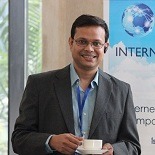
Anand Raje
(India)
Anand Raje is the Co-Founder and Director at RABT Technologies Ltd. He is also a Lead in the Indian IETF Capacity Building (IICB) programme, a Member of the National IXP (India), Vice President of the ISOC Kolkata Chapter, and is working with ICANN on establishing a L root instance in India. Anand holds a Msc in Computer Science & Network Security from Annamalai University (India), and works designing business solutions. His specialties are application security, software architecture, and business intelligence.

Chetan Harsha
(India)
Chetan Harsha is a R&D Engineer at Verizon Labs. In the past, he has been in research and engineering roles at Nokia Siemens and Toshiba Telecoms Research Labs. Chetan holds a MSc in Communication Networks and Signal Processing from University of Bristol (UK) and a Bachelor of Engineering from Visvesvaraya Technological University (India). His work is predominantly in the area of product development, field-testing, and network deployment. He is very interested in the MPTCP working group at the IETF.

John Jossimar Tucker Yépez
(Ecuador)
John Jossimar Tucker Yépez is a Professor at the Universidad Nacional de Loja (UNL), where he specializes in LAN / WAN routing and switching systems. He also oversees the Innovation Center at UNL. John is involved with CORPECE (Corporación Ecuatoriana de Comercio Electrónico), which is actively promoting e-commerce at the national level in Ecuador.
He is responsible for the development of Next Generation Leaders within the ISOC Ecuador Chapter. John has participated in telecoms project for the Navy of Ecuador, Manabi Judiciary, and Petro-Ecuador.

John Chand
(Fiji)
John Chand is a Senior ISP Engineer at Telecom Fiji Limited, where he is responsible for the delivery of telecommunications services such as ADSL, CDMA, EVDO, and Wi-Fi. He is a regular participant in PACNOG (Pacific Network Operators Group) and PITA (Pacific Islands Telecommunications Association). He is passionate about education and delivering fast and affordable Internet connectivity that promotes commercial and social growth. John is interested in the IPSECME, DANE, WEBSEC, and DPRIVE working groups at the IETF.
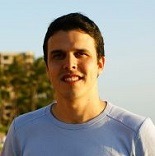
Juliano Wickboldt
(Brazil)
Juliano Wickboldt is a PhD Student at the Federal University of Rio Grande do Sul (UFRGS) in Porto Alegre, Brazil. He is also a member of the Computer Networks Group of UFRGS. Recently, he was in Watford, Ireland where he worked with the Emerging Network Laboratory of the Telecommunications Software & Systems Group (TSSG) of the Waterford Institute of Technology. Juliano holds a BSc in Computer Science from Pontifical Catholic University of Rio Grande do Sul (PUCRS), and a MSc degree in Computer Science from UFRGS conducted in a joint project with Hewlett-Packard Labs Bristol and Palo Alto.
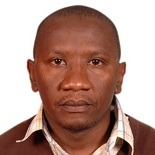
Kennedy Aseda
(Kenya)
Kennedy Aseda is a Senior Network Operations & Security Engineer at Kenya Education Network (KENET). At KENET, he oversees the network, data center and cybersecurity operations. He has also represented KENET as a member of the Global Eduroam Governance Committee (GEGC) where he was part of the team from Africa who were tasked with defining technological and administrative improvements for the operation of Eduroam at the global level.
He has also participated as a member of Kenya’s National IPv6 Task Force and National Cybersecurity Committee. His current interests are Internet operational security (OPSEC) and Internet measurements.

Leandro Melo de Sales
(Brazil)
Leandro Melo de Sales is a Professor at the Federal University of Alagoas. He holds MSc and Ph.D degrees in Computer Science from the Federal University of Campina Grande. For his Ph.D, he created a network protocol called GMTP (Global Media Transmission Protocol), and he is seeing very promising results using this protocol to deliver multimedia data over the Internet.
Leandro is presently coordinating a number of workshops for the XXXVI and XXXVII Congress of the Brazilian Computing Society. He has been acknowledged for his contributions to RFC 5622 for DCCP (Datagram Congestion Control Protocol).

Luiz Juliao Braga Filho
(Brazil)
Luiz Juliao Braga Filho is a Student at McKenzie Presbyterian University (MPU), where he is developing a model of interconnection, interaction and cooperation between multi-agents systems to make the features of Internet infrastructure autonomous and oriented to minimal human intervention. He holds a MSc in Computer and Electrical Engineering from MPU, and a MSc in Computer Science from Pontifical Catholic University of Rio de Janeiro.
He is interested in the ANIMA and DTN working groups at the IETF, and the GAIA and NMRG research groups at the IRTF.
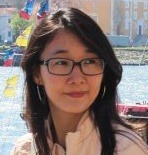
Patricia Endo
(Brazil)
Patricia Endo is a Professor at University of Pernambuco (UPE), and a Researcher at the Networking and Telecommunication Research Group (GPRT) of Federal University of Pernambuco (UFPE). She holds a BSc in Computer Engineering from the Federal University of Pará (UFPA) and MSc and a PhD degrees in Computer Science from the Federal University of Pernambuco (UFPE). Her main interest areas are cloud computing, SDN, and NFV.
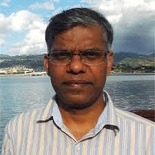
Paventhan Arumugam
(India)
Paventhan Arumugam is a Director at ERNET India, where he works on the nationwide satellite and terrestrial networks. He holds a Ph.D in Grid Computing from the University of Southampton, MTech in Computer Applications from the Indian Institute of Technology, and a MSc in Computer Science from Bharathidasan University.
He is a former Researcher at the Rutherford Appleton Laboratory (UK) and a Scientist / Engineer at the National Informatics Center (India). He is currently working on an IoT approach to smart metering and a real-time water quality monitoring system using constrained devices. Paventhan is a Returning Fellow and was selected for IETF 80, IETF 83, IETF 87 and IETF 91.

Robinson Rivas
(Venezuela)
Robinson Rivas is a Professor and Director of the Department of Computer Science at the Universidad Central de Venezuela. He holds a BSc in Computer Science from the Universidad del Zulia (Venezuela) and a MSc in Computer Science from the Universidad Simon Bolivar (Venezuela).
He is a Former Vice-President of the Computer Science Society of Venezuela, and the Founder of SC-Camp.org – the first super computing and distributed computing camp for Latin American students.

Shubert Alexis Castro Meza
(Ecuador)
Shubert Alexis Castro Meza is a Student at the Universidad Nacional de Loja, where he is studying Electronics and Telecoms Engineering. He is very interested in IPv6, radio networks, and security. Shubert is currently working on the design of a wireless public safety network for the security services and first responders in his community.
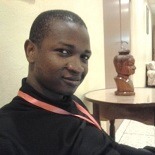
Seun Ojedeji
(Nigeria)
Seun Ojedeji is the Principal Network Engineer at the Federal University Oye-Ekiti, where he manages the institution’s network infrastructure and related services, and also plays a dual role where he oversees capacity building for staff as well as students. He is also involved with a number organizations on a voluntary basis, including AFRINIC, where he serves as the Policy Development Working Group Co-Chair, and ICANN where he was recently elected to serve as member of the At-Large Advisory Committee (ALAC).
He is also a member and participant in the “CWG-Stewardship” and “ICANN-CCWG on Accountability”. In the open source community, he is a member and Chair of the FOSSFA (Free Software and Open Source Foundation for Africa) Council.

Xiaohong Deng
(China)
Xiaohong Deng is a Student at the University of New South Wales where she is completing her Ph.D in Computer Systems Networking & Telecommunications. She previously worked for France Telecom (Orange), first as a Network Architect and then as a Project Leader / Research Engineer. Xiaohong has also been engaged with APNIC as an IPv6 Trainer. She has been actively involved with the IETF since 2010, and has completed one RFC, and is currently working on two others. She is a Returning Fellow, having been selected for IETF 81 and IETF 88.
Internet Society Fellows to IETF 93
Meet Internet Society Fellows to IETF 93, held in July 2015 in Prague, Czech Republic.

Abhijan Bhattacharyya
(India)
Abhijan Bhattacharyya is a Scientist at the Innovation Lab of Tata Consultancy Services; Asia’s largest software exporter. He presently works on creating innovative solutions that address the future requirements of IoT-specific applications. He has previously submitted a draft to the CoRE working grouping, and it has reached a mature stage. Abhijan is also a returning Fellow having been selected to participate in the Fellowship programme for IETF 90 Toronto.
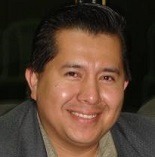
Albert Espinal
(Ecuador)
Albert Espinal works at the ESPOL University in Guayaquil. He has twenty (20) years experience in networking. This has allowed him the opportunity to collaborate with the research and education networks in Latin America such as CEDIA and RedCLARA. Albert also does work with the Cisco Networking Academy programme in Ecuador. He holds a MSc. in Information Science and a MBA, and is currently pursuing his Ph.D. studies. His interests include IoT, and QoS (Quality of Service) using predictive methods and routing protocols.
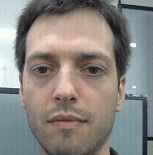
Daniel Formolo
(Brazil)
Daniel Formolo is a part-time Professor at Unisinos University in Southern Brazil, where he teaches algorithms and mobile applications development. When he is not teaching, Daniel leads technical teams and develops embedded software at the Software Association of Rio Grande do Sul State (Softsul). Most of the embedded software he works on are linked to oil\energy industry applications and Internet protocols. His passion is biological algorithms; the study of nature patterns and applying them in the computer world.
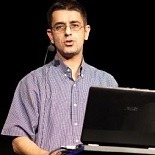
Dusan Stojicevic
(Serbia)
Dusan Stojicevic is the Chairman of the Serbian National Internet Domain Registry. He is also a member of the Cyrillic Generation Panel and Universal Acceptance Working Group in ICANN. Dusan is very interested in the multilingual Internet and internationalized domain names (IDNs), and closely follows the work being conducted in the DANE (DNS-based Authentication of Named Entities) working group of the IETF.

Edwin Cordeiro
(Brazil)
Edwin Cordeiro is a Student at the Technical University of Munich, Germany where he is pursing his Ph.D. He holds a MSc. in Computer Engineering/Computer Networks. While completing his Masters degree, he worked for NIC.br as an IPV6 instructor, and helped with the development of the organization’s IPv6 course materials, which have now become an instructional text.
Edwin is passionate about working with new technologies that enable communication between technical and non-technical people.

Gonzalo Romero
(Colombia)
Gonzalo Romero works for NeuStar, Inc in the Registry Services department. He is also the Chief Information Security Officer (CISO) at Colombia’s Country code top-level domain (ccTLD), where his main focus is on ‘developing the corporate strategy for protecting the stability, reliability and confidence of the .CO namespace (i.e. the registry, registrants and registrar channels and the Internet community)’.

Hector Prada
(Venezuela)
Hector Prada is currently working on his pre-graduate thesis at the University of Los Andes. He hopes to be a Systems Engineer when his studies have been completed. He is passionate about new technologies – their quick introduction to the market and the social impact. He is also interested in the roles of technology and the Internet in developing communities. Hector’s other passions include running, music and reading.

Isabel Montes
(Phillipines)
Isabel Montes is a Ph.D. Student at the University of the Philippines, where her research is focused on cooperative community networks and the development of standards/protocols that facilitate cooperation and resource pooling in such networks. For the last two years, she has also been involved with the CloudTop project, an initiative that aims to provide computer laboratories composed of thin clients and wireless Internet access to rural schools in the Philippines.
She is very interested in Multipath TCP and the deployment of SDN in Internet exchanges.

Karan Verma
(India)
Karan Verma is a pursing his Ph.D. at the Universiti Teknologi PETRONAS where he is also employed as an Assistant Professor. His main interest is information security and he is working on intelligent transport system security. Karan has developed an IP-CHOCK Reference which detects and prevents DoS attacks. He is seeking deeper understanding of the procedures followed for protocol standardization by IETF.
Karan is passionate about building a community around Internet Standards to help others improve their understanding of the IT environment.
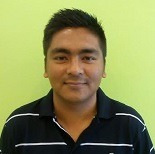
Kshitiz Shrestha
(Nepal)
Kshitiz Shrestha is a Network Engineer at Nepal Telecom, where he maintains and deploys IP-based networks. He also designs and conducts IPv6 routing workshops. Kshitiz is also an active IPv6 tutor and participates in meetings such as SANOG and APRICOT. His interests include traveling, exploring new places and meeting people. He is looking forward to participating in the V6OPS and IS-IS working group meetings.

Marcelo Luizelli
(Brazil)
Marcelo Luizelli is a Student at Federal University of Rio Grande do Sul (UFRGS). His current studies revolve around network functions virtualization (NFV) and software-defined networking (SDN). He holds BSc. and MSc. degrees in Computer Science, and is currently working on his Ph.D. in Computer Science. Marcelo has a love for anything related to communication systems. His other interests are meeting people and sharing ideas and experiences, as well as discovering new cultures.
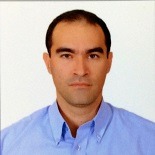
Oswaldo Banegas
(Bolivia)
Oswaldo Banegas is the Assistant Director, Internet & Data Services at COTAS Ltda. – a telecom cooperative in Bolivia. His main focus there is on the development and growth of Internet services across the country. He has a contributing role in NAP (Network Access Points), which is a national project to comply with the telecom laws and regulation of the country. Oswaldo is keenly interested in building relationships and networking with individuals directly involved with all aspects of Internet development.
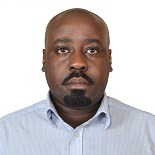
Paul Ngabirano
(Uganda)
Paul Ngabirano is the Infrastructure Delivery Manager at the National Information Technology Authority (NITA) in Uganda. He holds a BSc. in Electrical Engineering, and is currently pursuing his MSc. in Electrical Engineering. As a graduate student, his research focuses on network optimization. Paul’s hobbies are rugby, cricket and emerging technologies to support the last mile, especially in countries like Uganda and Africa. He is particularly interested in working on a ccTLD roadmap for Uganda.
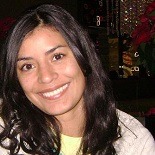
Sandra Céspedes
(Colombia)
Sandra Céspedes is an Assistant Professor at the University of Chile. While completing her Ph.D. at the University of Waterloo she was very involved in research on IP Mobility, and eventually her thesis was based on that subject. Her interest has now shifted to routing in LLN (low-power and lossy networks) and vehicular networks. Sandra routinely shares the experiences and information gathered at IETF with her students and professional networks, and is an advocate for greater participation in the IETF from academia.
Sandra is a Returning Fellow, having previously been selected for IETF’s 69, 76, 79, 83, and 87.



